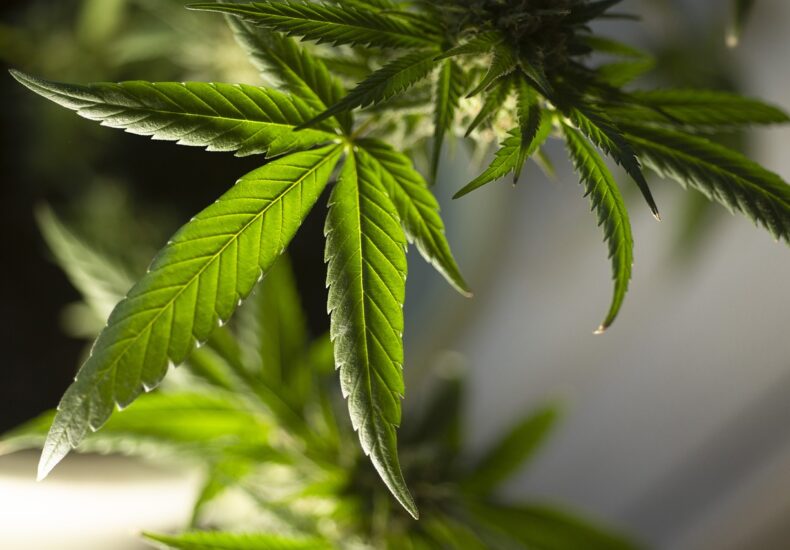
How THCA Flower Supports Relaxation Without Intense Euphoria
In recent years, the cannabis industry has seen a surge in interest surrounding various cannabinoids and their unique effects. Among these, THCA (tetrahydrocannabinolic acid) has gained attention for its potential to promote relaxation without the intense euphoria typically associated with THC (tetrahydrocannabinol). This article explores how THCa for athletes and recovery can offer a calming experience, backed by research and anecdotal evidence.
Understanding THCA: The Non-Psychoactive Precursor
THCA is a non-psychoactive compound found in raw and live cannabis plants. Unlike THC, which is known for its psychoactive properties, THCA does not produce a “high” when consumed in its natural form. This is because THCA must undergo decarboxylation, a process involving heat, to convert into THC. As a result, THCA can be consumed without the intense euphoria, making it an appealing option for those seeking relaxation without the high.
The Science Behind THCA’s Relaxing Effects
Research into THCA is still in its early stages, but preliminary studies suggest that it may have several therapeutic benefits. Some of these include anti-inflammatory, neuroprotective, and anti-emetic properties. These effects can contribute to a sense of relaxation and well-being.
- Anti-inflammatory properties: Inflammation is a common cause of discomfort and stress. By reducing inflammation, THCA may help alleviate physical tension, promoting relaxation.
- Neuroprotective effects: THCA has shown potential in protecting brain cells from damage, which could contribute to a calming effect on the nervous system.
- Anti-emetic properties: By reducing nausea and vomiting, THCA can help individuals feel more at ease, especially those undergoing treatments that cause these symptoms.
THCA vs. THC: A Comparison
While both THCA and THC originate from the same plant, their effects on the body and mind differ significantly. THC is well-known for its psychoactive effects, which can include euphoria, altered perception, and increased appetite. In contrast, THCA does not produce these effects, making it a suitable option for those who wish to avoid the high associated with THC.
For individuals seeking relaxation without the psychoactive effects, THCA offers a unique alternative. It allows users to experience the potential therapeutic benefits of cannabis without the risk of intoxication.
Real-World Applications and Case Studies
Several case studies and anecdotal reports highlight the potential of THCA flower in promoting relaxation. For instance, some individuals with chronic pain have reported relief and improved quality of life after incorporating THCA into their wellness routines. Others have found it helpful in managing stress and anxiety, providing a sense of calm without the high.
One notable case involved a patient with severe arthritis who experienced significant pain relief and reduced inflammation after using THCA-rich cannabis. This allowed the patient to engage in daily activities with greater ease and comfort.
How to Use THCA Flower for Relaxation
There are various ways to incorporate THCA flower into a relaxation routine. Some popular methods include:
- Juicing: Consuming raw cannabis leaves and flowers in juice form preserves the THCA content, allowing users to benefit from its effects without decarboxylation.
- Topicals: Applying THCA-infused creams or balms directly to the skin can target localized pain and inflammation, promoting relaxation in specific areas.
- Tinctures: THCA tinctures can be taken sublingually for quick absorption, offering a convenient way to experience its calming effects.
Potential Side Effects and Considerations
While THCA is generally considered safe, some individuals may experience mild side effects. These can include dry mouth, dizziness, or changes in appetite. It’s advisable to start with a low dose and gradually increase as needed to find the optimal amount for relaxation.
It’s also important to source THCA products from reputable suppliers to ensure quality and purity. Lab-tested products can provide assurance of their cannabinoid content and safety.
The Future of THCA in Wellness
As research into THCA continues, its potential applications in wellness and relaxation are likely to expand. With growing interest in non-psychoactive cannabinoids, THCA may become a staple in the wellness routines of those seeking natural alternatives to traditional relaxation methods.
Advancements in cultivation and extraction techniques will likely lead to more refined and potent THCA products, offering users a wider range of options to suit their needs.
Conclusion
THCA flower presents a promising option for individuals seeking relaxation without the intense euphoria associated with THC. Its non-psychoactive nature, combined with potential therapeutic benefits, makes it an appealing choice for those looking to enhance their well-being naturally. As research progresses, THCA’s role in promoting relaxation and overall wellness is expected to grow, offering new possibilities for those exploring the benefits of cannabis.
- Managing Your Canine’s Joint inflammation with CBD: An Animal Proprietor’s Overview
- Checking out the Conveniences of CBD Oil for Aging Dogs and Joint Inflammation Relief
- Brew Like a Pro: Understanding the Art of Making Perfect Mushroom Coffee
- ** The Influence of Gold IRA Charges on Your Financial Investment Strategy **.
- Tax Obligation Benefits of Purchasing Gold and Silver with Augusta